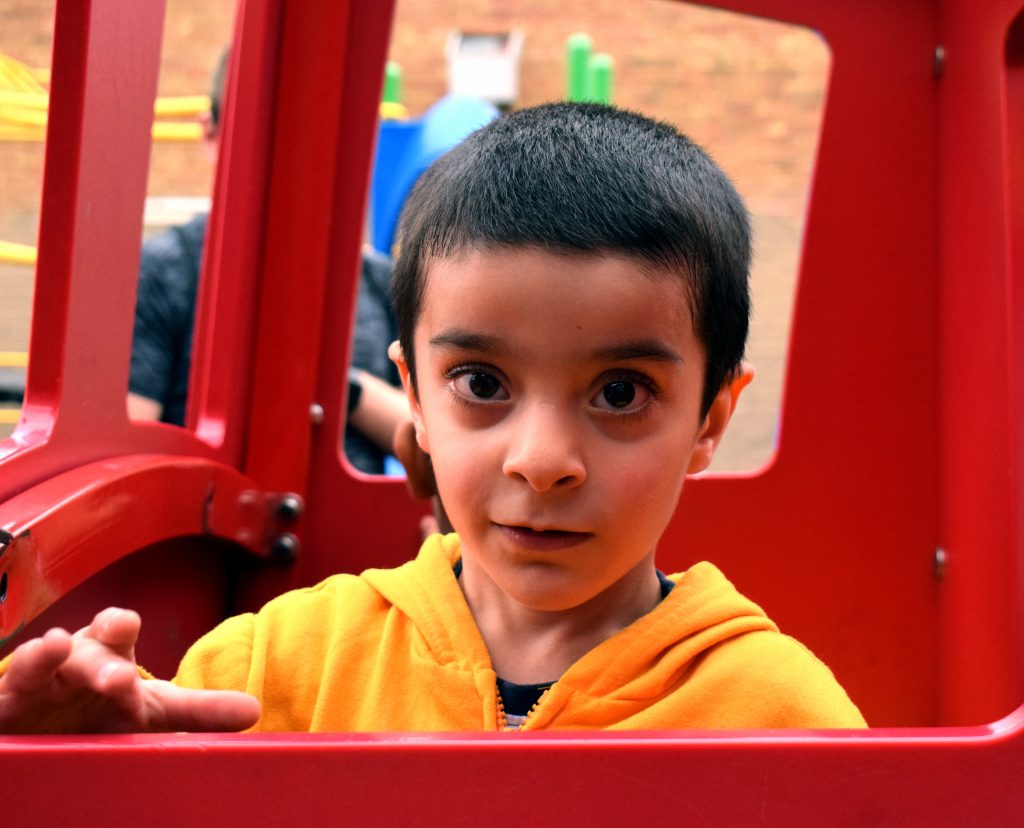Four years ago, Maryam and her kids were in a much different situation than today. The family left their home in Dahok, Iraq the year ISIS took over Mosul (50 miles to the south) and killed thousands of Yazidi people in Sinjar (a hundred miles to the west). Maryam didn’t share the details of their departure or why her husband did not flee with them. But it was clearly a dangerous region for Assyrian Christians like them, or any other religious minorities…
Maryam—who preferred not to be photographed—had three-year-old Jseeka (pictured above), two-year-old Danyal, and was five months pregnant when they left for Turkey. Here’s what she had to say about that time:
“Here in America, we have a lot of things we want to do. We are going a step at a time. For example, we want to study, buy a car, learn how to drive, work. But in Turkey, there was nothing. We were just in transit. My kids didn’t go to school. We were just waiting for the paperwork to come to America. Just sitting at home waiting for the processing. I was counting the time hour by hour.”
“I was always thinking about what I was going to do, how to survive, what to do with these kids. I was nervous and kind of depressed. But I was only thinking of my kids, and they gave me power to keep going. I was thinking, ‘I am here only for them. I have to be a strong woman for my kids.’”
After two years and four months in Turkey, the family came to the United States through the refugee resettlement program. They joined Maryam’s parents, two sisters, and other relatives. Now they live a block from their neighborhood school. The extended family helps care for the kids. And twice a week Jseeka and Danyal attend a World Relief after school program hosted by a local church.

When you help refugees rebuild their lives, you give more than materials and services for kids like Jseeka and Danyal. You provide something immaterial: the sense of stability and growth that was lost in displacement. You walk with families as they move from displacement to belonging, retaining parts of their culture and adopting parts of American culture.
“I want my kids to keep learning English and to learn how to be on time, like Americans,” said Maryam. “You guys are very organized here. When you say four o’clock, it’s four o’clock. Not six or seven. At 8:30, they close the door to my kids’ school. If you get there at 8:31, you’re late and you have to take your kids in through the office and explain why.”
Maryam laughed as she said these words, her smile alone expressing a range of emotions that couldn’t be articulated in a short conversation across a language and culture gap. But among them, a few were clear: strength, pride on behalf of her kids, and hope for a future together with her loved ones.
As a community of World Relief donors, you have helped 400,000 refugees and immigrants like Maryam, Jseeka, and Danyal rebuild their lives. Continue your support this month.

